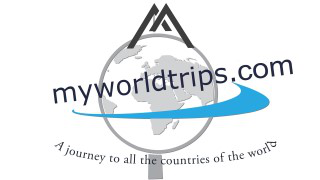

Introduction
After an heavy two-week journey through Cameroon, I made a good decision to continue my African adventure with an (long) overland drive into the Central African Republic (CAR).
Route i travelled coming from Cameroon:
Yaoundé – Bertoua
Bertoua – Yokadouma (drive to the border with the Central African Republic)
Yokadouma – Libongo – Bayanga (CAR)
(continue to the border with the Central African Republic (CAR). This is the deep Southeastern corner of Cameroon, close to the CAR and Congo border. Upon arrival in Libongo, i have crossed the border from Cameroon into CAR. The border is at the Sangha River and also the start of the Dzanga-Sangha National Park. This park is considered one of the best parks in Africa.

My destination: Dzanga-Sangha National Park, a remote sanctuary tucked away in one of the last remaining expanses of untouched rainforest on the continent. This park wasn’t just a stopover — it was the reason for crossing borders, and it delivered an experience like no other.




About Dzanga-Sangha: A Biodiversity Treasure
Nestled in the southwest corner of CAR, Dzanga-Sangha is part of the larger Sangha Trinational Protected Area, a UNESCO World Heritage Site shared by CAR, Cameroon, and the Republic of Congo. Established in 1990 and spanning 6,865 square miles, this region is a global biodiversity hotspot — a living cathedral of trees, sounds, and secrets.










The park shelters an extraordinary array of endangered species, including:
- Western lowland gorillas
- Forest elephants
- Bongo antelopes
- Sitatungas, leopards, and countless primates and bird species
What makes Dzanga-Sangha so special is its intimacy with nature. Far from mass tourism, it offers raw, unfiltered wilderness, guided by those who know it best — the Ba’Aka people, indigenous forest dwellers with unmatched knowledge of the land.
Top Experiences & Places to Visit in Dzanga-Sangha
1. Gorilla Tracking

One of the park’s headline experiences is western lowland gorilla trekking — possibly the best in Africa.
- Treks are done in small groups with expert trackers.
- You can spend up to an hour with habituated gorilla families, observing their feeding, social interactions, and movement.
- Unlike some busier parks, here you feel a genuine sense of solitude and connection with the wild.





2. Dzanga Bai – The Elephant Clearing
This natural forest clearing is one of the most remarkable wildlife observation sites in the world.

- At any time, dozens of forest elephants emerge from the trees to drink mineral-rich water.
- The sight of these smaller, shy elephants mingling with bongos, buffaloes, and birds is simply breathtaking.
- Elevated viewing platforms make for excellent photography and peaceful observation without disturbing the animals.
3. Ba’Aka Cultural Immersion
Spending time with the Ba’Aka pygmies is a profound cultural encounter.
- Join them on net hunting expeditions, forest foraging, or traditional music sessions.
- The Ba’Aka’s ecological knowledge and harmonious relationship with the forest offer a rare and respectful perspective on indigenous life.

- 4. Monkey & Wildlife Walks
The forest is teeming with life — duikers darting across trails, colorful birds flitting through the canopy, and monkeys like:
- De Brazza’s monkey
- Red colobus
- Crowned guenon
5. River Safaris on the Sangha River
Take a dugout canoe or motorboat down the Sangha River.
- Glide through misty backwaters at dawn or sunset.
- Look for hippos, crocodiles, and kingfishers — or just enjoy the serene jungle ambiance.
Practical Travel Tips for Dzanga-Sangha
Getting There
- Access typically begins from Bayanga, the gateway village to the park.
- Overland from Cameroon (via Yokadouma) is the most common route; 4×4 vehicles and experienced local drivers are essential.
- Flights are limited — this is truly an off-the-beaten-path destination.
Best Time to Visit
- The park has an equatorial climate with consistent rainfall, but travel is possible year-round.
- Drier months (Dec–Feb, Jun–Aug) offer better road conditions and wildlife visibility at the bais.
Accommodation

- Lodging is rustic but charming, with eco-lodges near the park like:
- Sangha Lodge is where i have stayed https://www.sanghalodge.com/
Park Regulations
- Gorilla permits are required and limited — book in advance.
- Wildlife encounters follow strict conservation protocols: no flash photography, no touching, and no feeding.
- Travel insurance and vaccinations (Yellow Fever mandatory) are essential.

Some images from along the road


